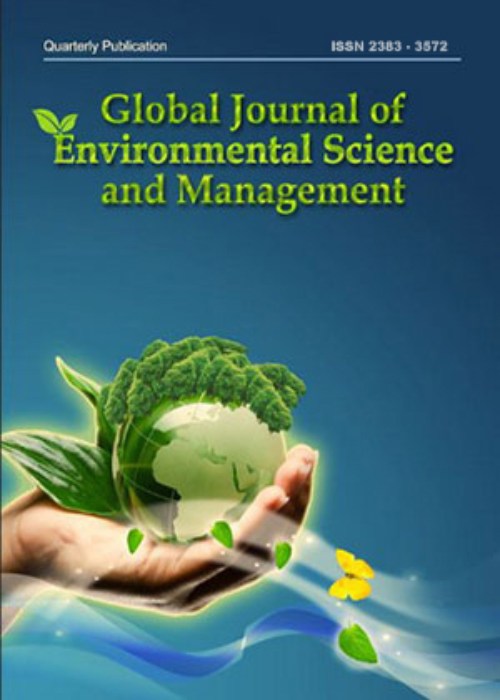Biological control of bacterial wilt in pathumma; Curcuma alismatifolia
Author(s):
Article Type:
Research/Original Article (دارای رتبه معتبر)
Abstract:
BACKGROUND AND OBJECTIVES
In Thailand, bacterial wilt is one of the most severe diseases that affects pathumma, also known as Curcuma alismatifolia Gagnep. Biological control was proposed to control this disease with antagonistic bacteria. The current study was conducted to screen for antagonistic microorganisms capable of inhibiting the pathogenic bacteria and to evaluate the beneficial effect of antagonistic bacteria on pathumma in vivo.METHODS
Antagonistic bacteria were isolated from soil samples obtained from several locations in Thailand and screened for antibacterial activity. Next, the optimal conditions for the growth of antagonistic bacteria were determined. The production of anibacterial substances were then characterized. The potential of antagonistic bacteria to reduce the growth of plant pathogens was evaluated under greenhouse conditions. FINDINGS
In total, 102 bacterial isolates were isolated using tryptic soy medium. After evaluating their capacity to inhibit the growth of the wilt-causing bacteria using the paper disc diffusion assay, it was found that three bacterial isolates, Bacillus subtilis SP15, Pseudomonas mosselii SP38, and Pseudomonas mosselii SP46 showed high ability to inhibit growth of the wilt-causing bacteria Enterobacter asburiae JK1, JK2, JK3, JK4, E. dissolvens JK5 and E. hormachei JK6. The optimal conditions for all antagonistic bacterial isolates were 25 or 30 degrees Celcius, at potential of hydrogen 7-8 in modified tryptic soy medium containing 0.5 percent (weight /volume) glucose or sucrose and 1.5 or 2 percent (weight/volume) peptone. The antagonists were able to produce siderophores and phenazines. Under greenhouse experiments, the mixed cultures of antagonistic bacterial isolates could reduce the wilt disease incidence, and the number of pathogenic bacteria declined compared with the diseased control plants. In addition, it was discovered that soil materials provided the best carrier materials for the successful formulation of the mixed culture of antagonistic bacteria.CONCLUSION
This study revealed that the selected antagonists were beneficial for controlling wilt disease in pathumma. This is the first scientific study on the control of wilt-disease causing Enterobacter spp. in C. alismatifolia Gagnep. in Thailand using antagonistic bacteria. It is expected that these antagonistic bacteria be useful in wilt disease management in the field for friendly and sustainable agricultureKeywords:
Language:
English
Published:
Global Journal of Environmental Science and Management, Volume:9 Issue: 4, Autumn 2023
Pages:
127 to 144
magiran.com/p2622613
دانلود و مطالعه متن این مقاله با یکی از روشهای زیر امکان پذیر است:
اشتراک شخصی
با عضویت و پرداخت آنلاین حق اشتراک یکساله به مبلغ 1,390,000ريال میتوانید 70 عنوان مطلب دانلود کنید!
اشتراک سازمانی
به کتابخانه دانشگاه یا محل کار خود پیشنهاد کنید تا اشتراک سازمانی این پایگاه را برای دسترسی نامحدود همه کاربران به متن مطالب تهیه نمایند!
توجه!
- حق عضویت دریافتی صرف حمایت از نشریات عضو و نگهداری، تکمیل و توسعه مگیران میشود.
- پرداخت حق اشتراک و دانلود مقالات اجازه بازنشر آن در سایر رسانههای چاپی و دیجیتال را به کاربر نمیدهد.
In order to view content subscription is required
Personal subscription
Subscribe magiran.com for 70 € euros via PayPal and download 70 articles during a year.
Organization subscription
Please contact us to subscribe your university or library for unlimited access!


